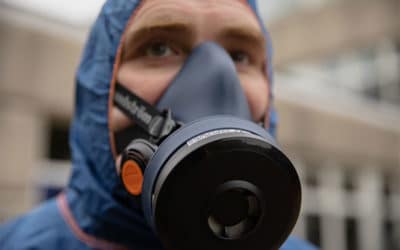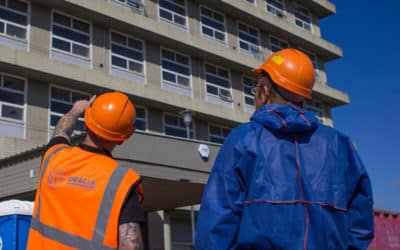Which occupations are most likely to require asbestos awareness training? This article outlines key roles—from builders to surveyors—at risk of disturbing ACMs and explains legal duties under CAR 2012, training requirements, and common compliance pitfalls.
Asbestos Guides & Information
Find out more about asbestos related issues, tips and adviceLearning Centre Guides: Training
What is a P402 certificate?
The P402 certificate, awarded by BOHS, is the industry-standard qualification for asbestos surveyors in the UK. This course covers asbestos identification, surveying techniques, and management procedures to ensure compliance with safety regulations. It is a key credential for professionals in asbestos risk assessment.
What is the difference between Cat A and Cat B asbestos training?
Discover the key differences between Cat A and Cat B asbestos training and find out which one is the right asbestos awareness training course for you. Ensure safety and compliance with the right training.
Is asbestos training a legal requirement?
Learn why asbestos training is crucial, even post-1999, for UK buildings. Ensure health safety and compliance with vital CAR 2012 regulations. Is training mandatory? Find out what you need to know about this important subject.
Can I do an asbestos awareness course online?
Discover what you need to know about online asbestos awareness courses to ensure safety in pre-2000 buildings. Learn how they help you manage ACMs effectively and protect against serious health risks. They are ideal for workers and duty holders in high-risk professions.
What is asbestos awareness training and who needs it?
Asbestos awareness training is crucial for many UK workers to avoid health risks from ACMs in pre-2000 buildings. This legal necessity educates on identifying, handling, and minimizing asbestos exposure to prevent fatal diseases. Learn more.
What are the do’s and don’ts of working with asbestos safely?
Working with asbestos requires strict safety measures due to its serious health risks, like lung disease and cancer. Learn about the do’s and don’ts in order to ensure safety when handling asbestos.
Who requires duty to manage asbestos training in the UK?
The UK’s CAR 2012 mandates dutyholders responsible for non-domestic premises to manage asbestos, ensuring safety and compliance. Duty to manage asbestos training equips these individuals with legal knowledge, risk assessment, and management planning skills to avoid hefty fines or imprisonment.
How often should I take a refresher for asbestos duty to manage training and why?
Asbestos training refreshers are crucial for dutyholders in buildings with asbestos-containing materials. Regular refresher training ensures up-to-date knowledge on legal guidelines, best practices, and safety protocols. Frequency depends on building type, work nature, and regulatory changes.
Does asbestos duty to manage training apply to schools and colleges?
Asbestos awareness is critical in schools. Around 83% of UK schools have asbestos. Duty to manage training is vital, covering legal responsibilities, asbestos plans, and risk management. Regular refreshers (every 12 months) ensure compliance, safety, and a healthy learning environment.
How many types of asbestos training are there?
Asbestos training is crucial for safety. Understand the types: Awareness, Non-licensable work, Licensable work, Duty to manage, Supervisory, and Industry-specific. Refresh regularly to stay informed. Certificates, while not legally required, showcase competence. UKATA offers high-quality training aligned with regulations. Develop proficiency over time through a combination of courses and on-the-job learning.
Why should your asbestos duty to manage training be UKATA accredited?
Discover the significance of UKATA accreditation for asbestos duty to manage training. Uncover the role of dutyholders in compliance with CAR 2012 and the legal obligations. Explore the benefits of UKATA-accredited training, ensuring high-quality standards, legal compliance, and industry recognition. Don’t risk non-accredited providers; opt for peace of mind and safety with UKATA-accredited training.











